This phrase was made popular by Richard Nixon around 1968 when he attempted to discredit Vietnam war protestors as a group of vocal fringe elements, while he was secretly escalating the war into Cambodia. “The silent majority”, it was supposed by Nixon, still supported the US involvement in Vietnam.
It must be admitted, that 40 years later, the phrase still resonates with us. But as clever and smart as Nixon was, he did not come up with it himself; the phrase actually had its origins in classical literature. It was used to describe dead people. So, surely that must mean that in Nixon’s democracy, we should always respect the opionions of the dead, since there will always be more of them than of us. This need to respect their opinions is made more urgent by the fact that dead people cannot speak for themselves, and thus have no voice of their own in our political discourse. In addition, most of them are hard-working dead people who have never committed crimes.
In recent elections, however, dead people have in fact lent their weight to various political parties by voting in several recent elections in several states in the US. Dead people have also run for political office, and one of them won an election in a race against John Ashcroft. In America, dead people are full participants in the democratic process, benefitting both Democrats and Republicans.
Surely, Nixon’s phrase has resonance, not in the apologetic, hawkish, warmongering sense, but in the originally intended sense, backed by over 1000 years of classical European literature. I think Nixon really was referring to dead people, and he may have even been invoking the spirit world.
What is the true origin of that phrase? I was itching to find out.
At first, I thought “silent majority” must have originated from Dante’s Inferno, where would likely have used it to describe the dead. It turned out to be too juicy a fact to be true. He doesn’t use the phrase.
Phrases close to this have been pointed out a few years ago by the late classical scholar James B. Butrica, who quoted several writers, including the ancient Roman writer Petronius (AD 27-66): “Abiit ad plures” or, “S/He’s gone to the majority”, a fancy way of saying “S/He’s dead”. Butrica says that the same phrase was also used some 200 years earlier by Roman writer Plautus (circa 254–184 BCE).
At any rate, all I have to say is: one man, one death. It wouldn’t be terribly democratic if one man had two deaths. And also, I believe quite strongly that if you vote when you are alive, then if you die right after you leave the polling station, then you shouldn’t be allowed to come back and vote again as a dead person before the polls close.
In closing, I must say that the constant invocation of “the silent majority” over the years whenever most discourse opposes what a politician does, is a fallacy. We only have one way to read “silent majority” (I’m talking about the living this time), which is to say that if you don’t speak up, it is because it (whatever “it” is) doesn’t arouse your passions, and thus you don’t care. If the majority of voters decide not to vote, for example (as is too sadly the case most of the time), then their silence is not seen as a vote for anyone, and their non-votes are never counted. A politician cannot “listen” to the silent majority, because there is nothing for them to hear.
Visits: 147

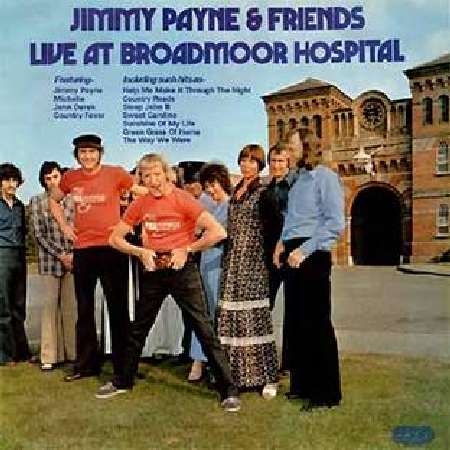 This album was only released in England in 1976, by a Pop/Country musician from Missouri named Jimmy Payne.
This album was only released in England in 1976, by a Pop/Country musician from Missouri named Jimmy Payne.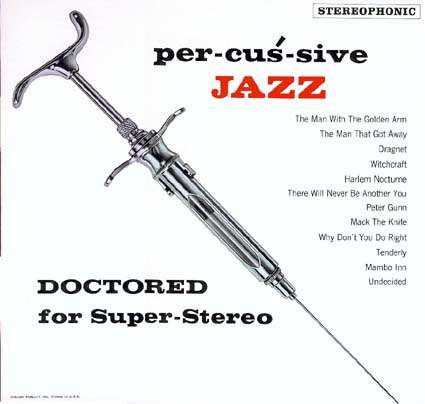 This is the kind of needle used to deliver strong anaesthetic, although I’ve seen something like this used to inject basting juice into the meat of turkeys as they cook.
This is the kind of needle used to deliver strong anaesthetic, although I’ve seen something like this used to inject basting juice into the meat of turkeys as they cook.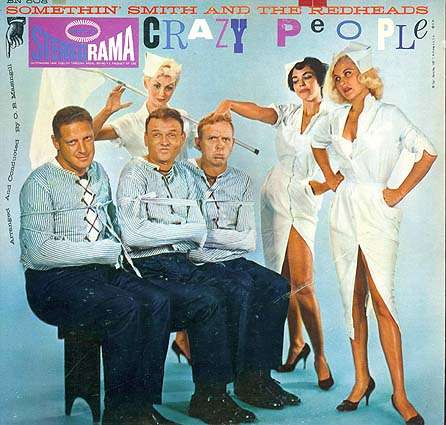 Somethin’ Smith and The Redheads were a vocal group that had their heyday in the 1950s with the song “It’s a Sin To Tell a Lie” (#7 on Billboard), off the album “Crazy People”.
Somethin’ Smith and The Redheads were a vocal group that had their heyday in the 1950s with the song “It’s a Sin To Tell a Lie” (#7 on Billboard), off the album “Crazy People”.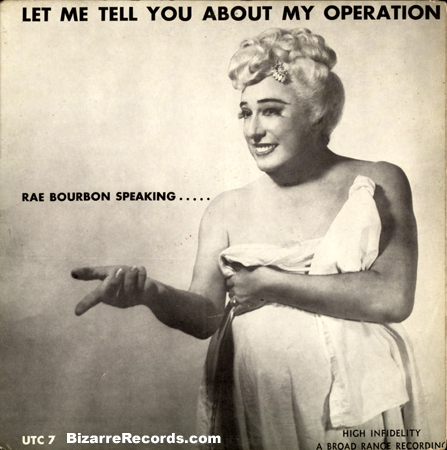
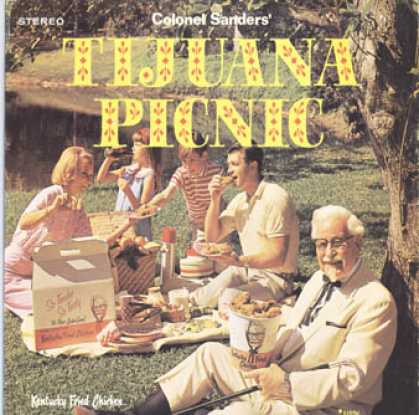

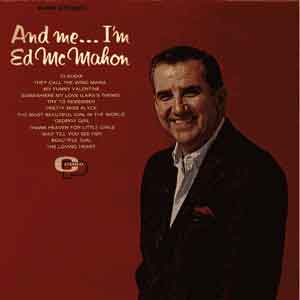

 There are enough albums by imitation and tribute groups to fill the Grand Canyon. Like all of the groups in this post, there is no information on King’s Road, or the album.
There are enough albums by imitation and tribute groups to fill the Grand Canyon. Like all of the groups in this post, there is no information on King’s Road, or the album. This kind of cover makes me think. It makes me think, how can Lenny Dee play the organ and navigate a raft at the same time? But if I look closely, I can see that he is tethered to a boat in front, like the lady in the foreground. I wonder if they both get to jump a ramp?
This kind of cover makes me think. It makes me think, how can Lenny Dee play the organ and navigate a raft at the same time? But if I look closely, I can see that he is tethered to a boat in front, like the lady in the foreground. I wonder if they both get to jump a ramp?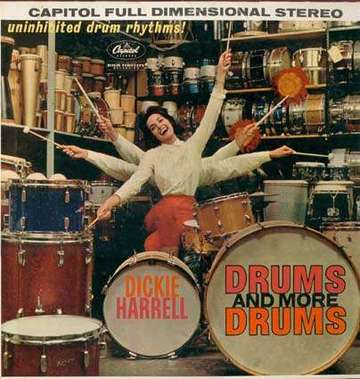 It is rather amazing to see yet another woman with multiple arms (see
It is rather amazing to see yet another woman with multiple arms (see 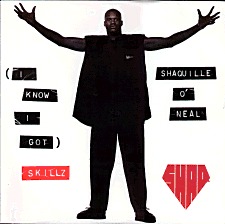
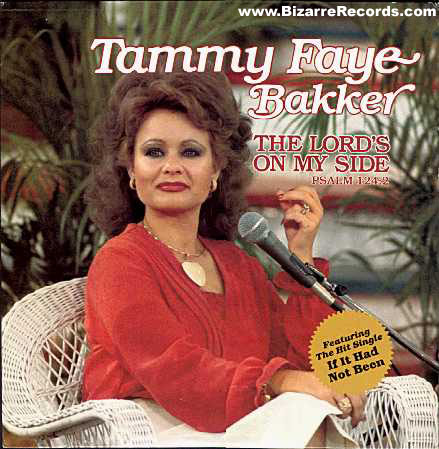
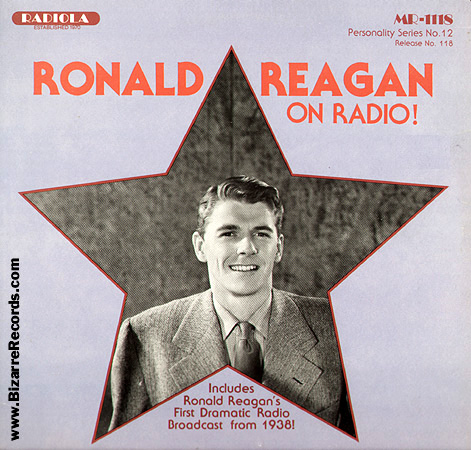

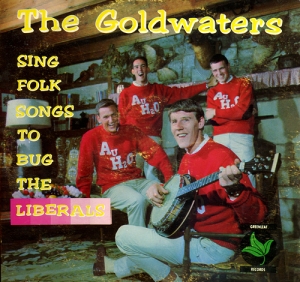
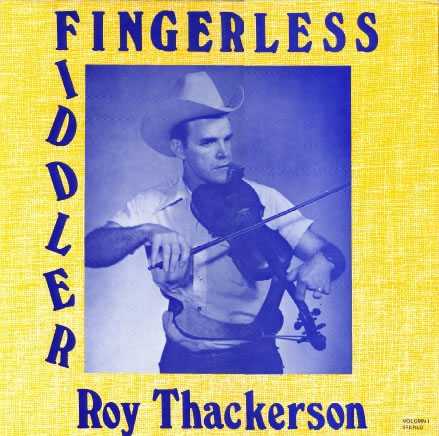
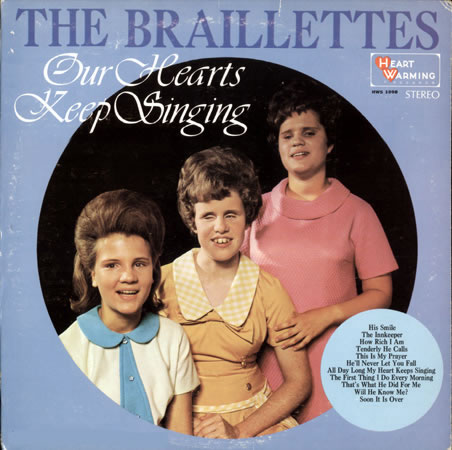
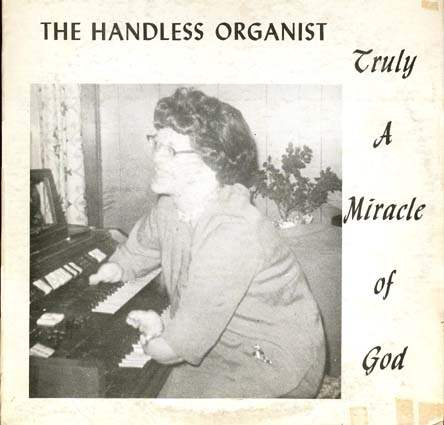
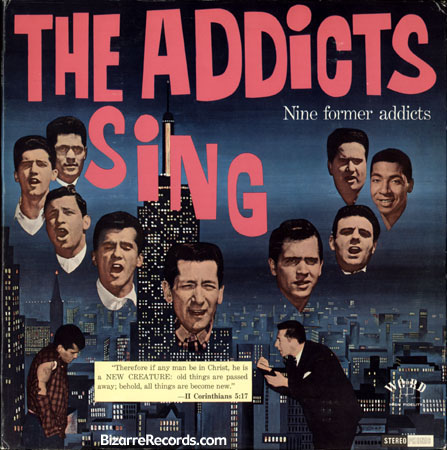
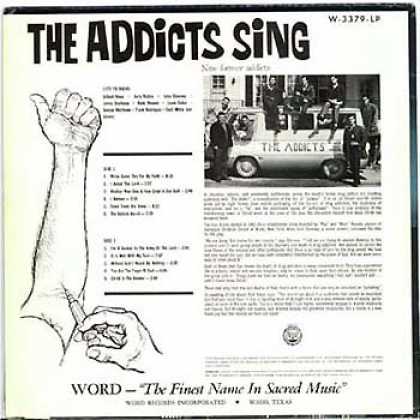
 It is worth repeating from
It is worth repeating from 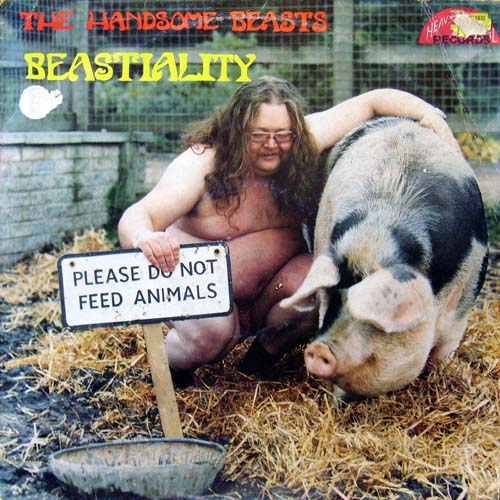 Well, this isn’t really a crappy album cover, per se, precisely because one can sense that it is intentionally crappy. I guess that still makes it crappy.
Well, this isn’t really a crappy album cover, per se, precisely because one can sense that it is intentionally crappy. I guess that still makes it crappy. In
In 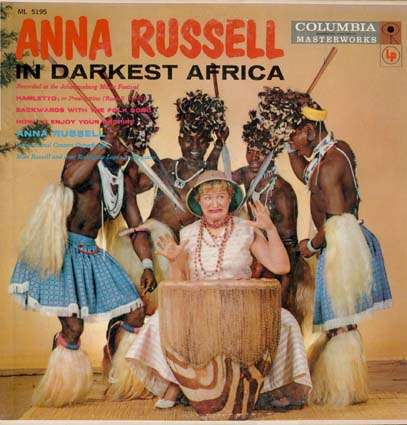 Anna Russell here has angered the local native population because she was playing with someone’s bongo drums without asking. You know how it is. How would you feel if you knew your house guest was playing with your drum kit or your guitar that you worked so hard to tune up? Non-musical people don’t seem to sympathise with these things, and just barge in and use our stuff anyway, and it angers us. I don’t have any spears to throw at them, but gosh, I would find something.
Anna Russell here has angered the local native population because she was playing with someone’s bongo drums without asking. You know how it is. How would you feel if you knew your house guest was playing with your drum kit or your guitar that you worked so hard to tune up? Non-musical people don’t seem to sympathise with these things, and just barge in and use our stuff anyway, and it angers us. I don’t have any spears to throw at them, but gosh, I would find something. Another Decca 1956 recording, “Africa Speaks, America Answers” shows a nice effort to try and establish diplomacy. I understand many people from the that continent will still find it humorous in the sense that Africa always seems to be discussed as if it were just one country.
Another Decca 1956 recording, “Africa Speaks, America Answers” shows a nice effort to try and establish diplomacy. I understand many people from the that continent will still find it humorous in the sense that Africa always seems to be discussed as if it were just one country.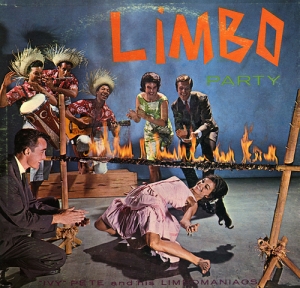
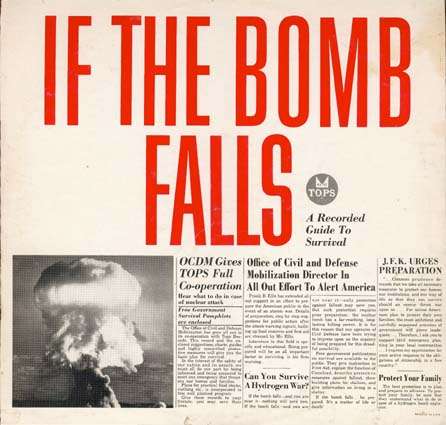
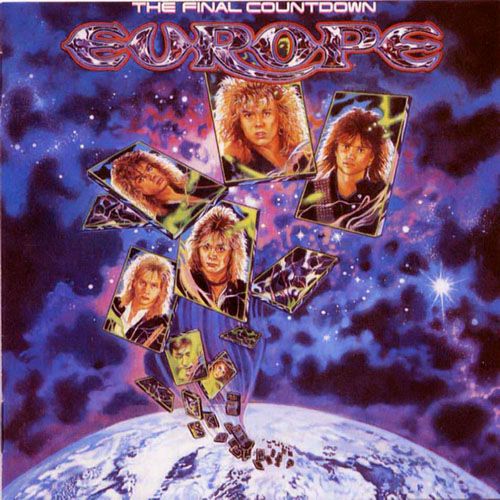
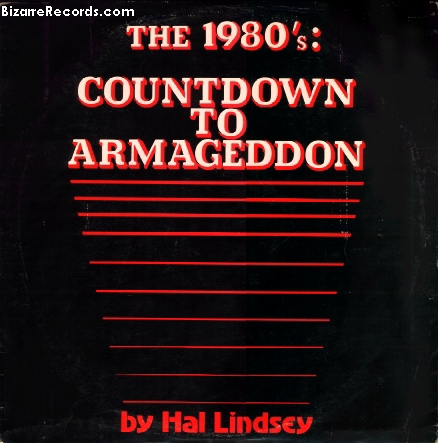
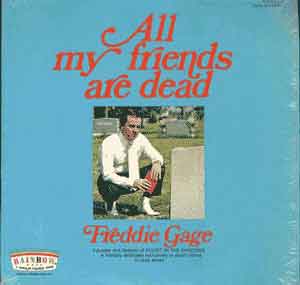
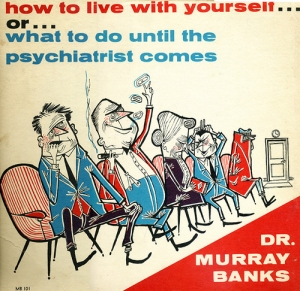
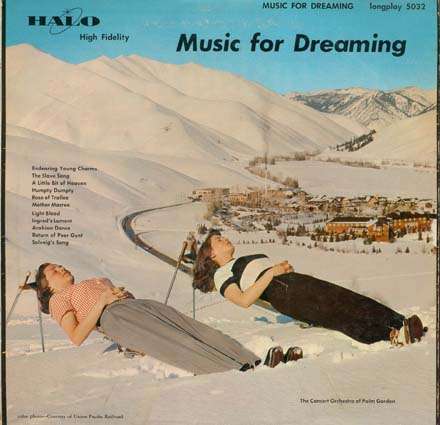
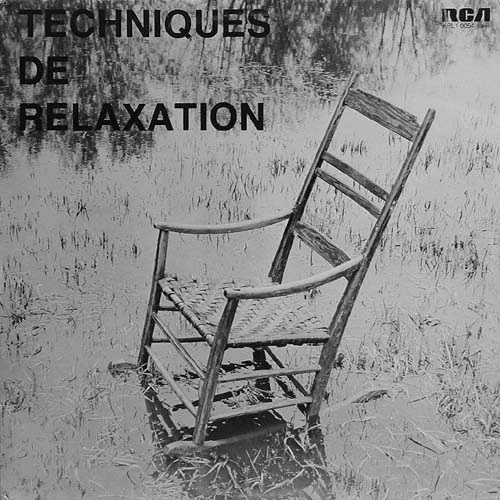
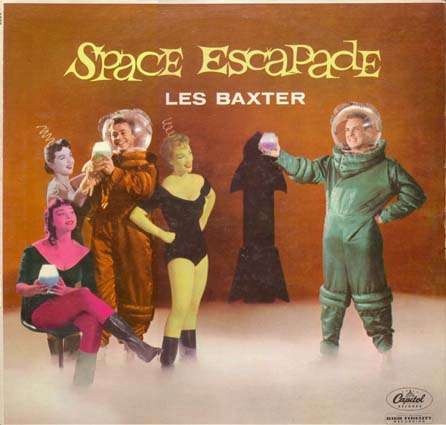
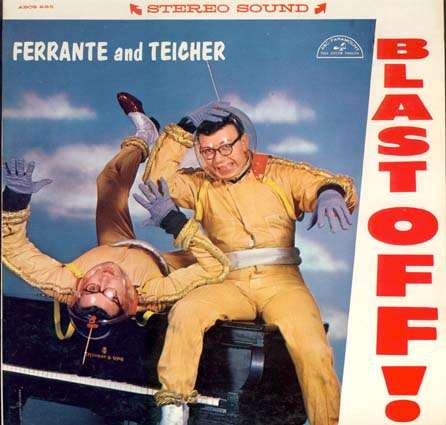
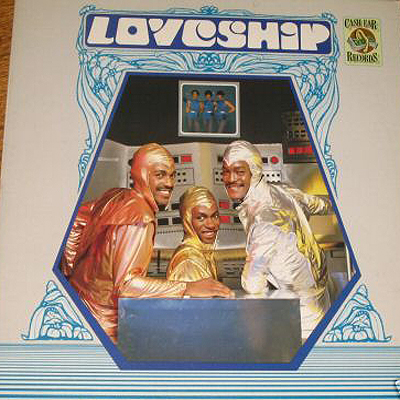
 Kjell Kraghe is a Swedish performer, and not much info exists on him in English. It seems that he had appeared in a Swedish TV miniseries, but again information is sketchy.
Kjell Kraghe is a Swedish performer, and not much info exists on him in English. It seems that he had appeared in a Swedish TV miniseries, but again information is sketchy.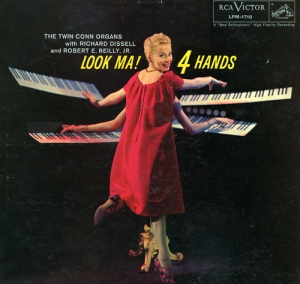 I am a relative newbie to classical music. There are 2 organists on the album “Look Ma! 4 Hands”, Richard Dissell and Robert Reilly, Jr. That’s 4 hands, and from what I understand to be the wont of some album designers for classical music, there is from time to time an accompanying picture that makes it look absurd, such as this retouched photo of a woman with 4 hands extending from her gown.
I am a relative newbie to classical music. There are 2 organists on the album “Look Ma! 4 Hands”, Richard Dissell and Robert Reilly, Jr. That’s 4 hands, and from what I understand to be the wont of some album designers for classical music, there is from time to time an accompanying picture that makes it look absurd, such as this retouched photo of a woman with 4 hands extending from her gown.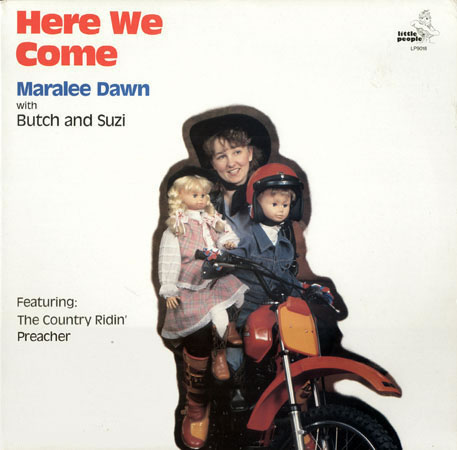
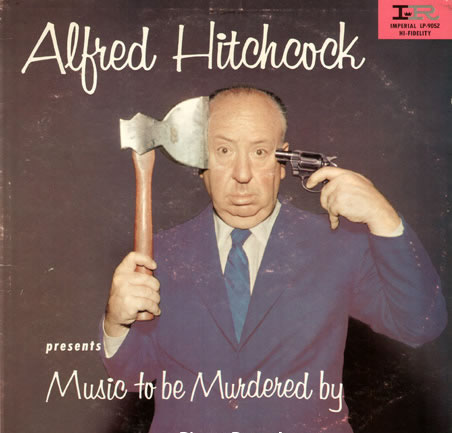

 Some of the photo retouching ideas are kind of kinky, but that’s part of what makes them so hilarious.
Some of the photo retouching ideas are kind of kinky, but that’s part of what makes them so hilarious.
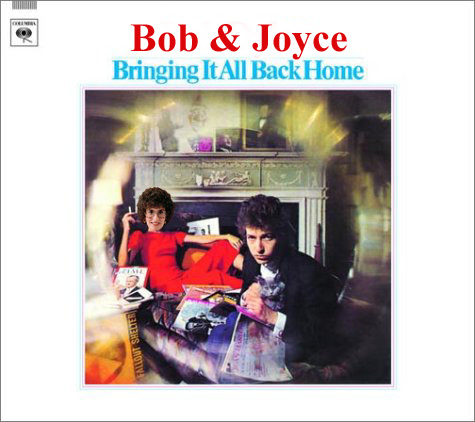 Ah, yes … hangin’ out with early Bob Dylan, smokin’ weed and listening to Dylan’s poetry and song. I thought that was Joyce on the album. She’s more hip than we gave her credit.
Ah, yes … hangin’ out with early Bob Dylan, smokin’ weed and listening to Dylan’s poetry and song. I thought that was Joyce on the album. She’s more hip than we gave her credit. Once again, Joyce proves us all wrong about her. Here she is as a glamourous diva, the real creative muse behind Beyonce.
Once again, Joyce proves us all wrong about her. Here she is as a glamourous diva, the real creative muse behind Beyonce.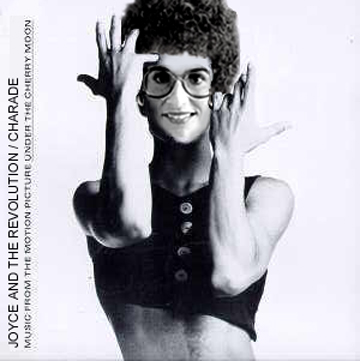 For sheer technological prowess, nothing beats the retouching job of this Prince album. Prince is now the woman he always wanted to be.
For sheer technological prowess, nothing beats the retouching job of this Prince album. Prince is now the woman he always wanted to be. Now for the ultimate, Joyce’s head pasted on Cher’s body. And there’s more …
Now for the ultimate, Joyce’s head pasted on Cher’s body. And there’s more … Here, Joyce, shows us her other, darker side. She wantsssss it! She wantssss it! (The ring, that is)
Here, Joyce, shows us her other, darker side. She wantsssss it! She wantssss it! (The ring, that is)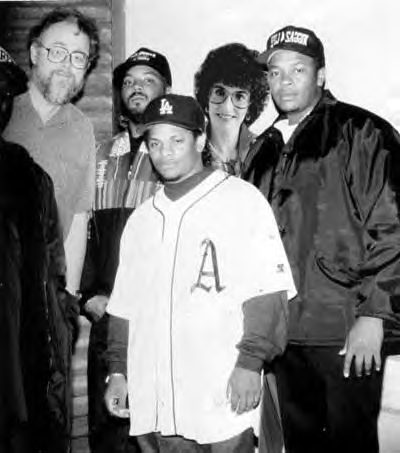
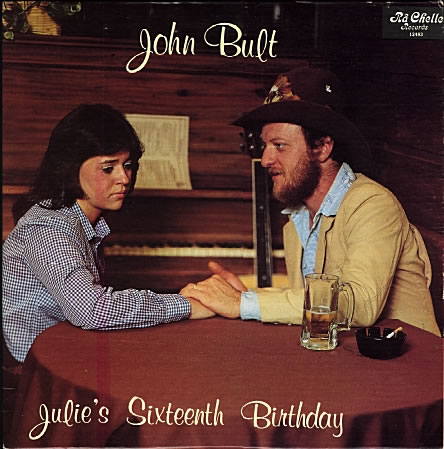 There is no information that I can find on John Bult. Just this lasting impression, the album cover to “Julie’s Sixteenth Birthday”, plastered all over the ‘net. I can’t say what hasn’t already been said about the creepy impression this album gives me, and the incredulity that an album cover like this would actually be thought to sell records.
There is no information that I can find on John Bult. Just this lasting impression, the album cover to “Julie’s Sixteenth Birthday”, plastered all over the ‘net. I can’t say what hasn’t already been said about the creepy impression this album gives me, and the incredulity that an album cover like this would actually be thought to sell records. On to the next album cover. It is known in psychiatric circles that if you are lacking in feelings you probably also lack empathy or remorse for those who do. This makes what is known as a “psychopathic” personality. While it would be obvious that you can’t “borrow” feelings to compensate, a psychopath would place a drain on those around him or her until they too are deficient in feeling.
On to the next album cover. It is known in psychiatric circles that if you are lacking in feelings you probably also lack empathy or remorse for those who do. This makes what is known as a “psychopathic” personality. While it would be obvious that you can’t “borrow” feelings to compensate, a psychopath would place a drain on those around him or her until they too are deficient in feeling.
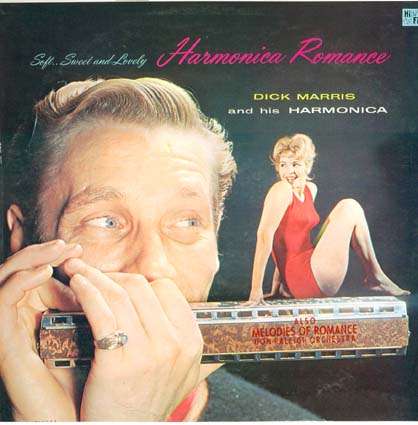
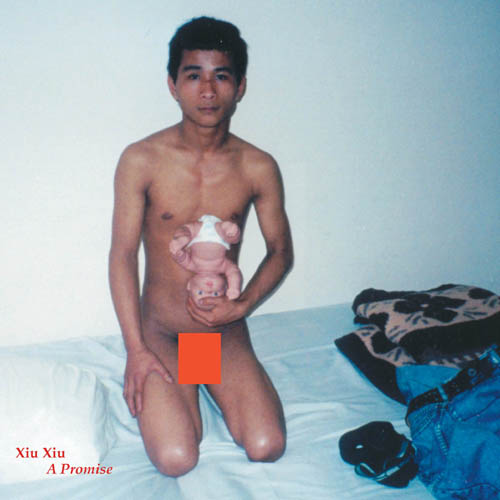 Xiu Xiu is a indie experimental outfit out of California. Despite its oriental-sounding name, none of its members have oriental-sounding names. A publicity photo of the group looks overwhelmingly Caucasian.
Xiu Xiu is a indie experimental outfit out of California. Despite its oriental-sounding name, none of its members have oriental-sounding names. A publicity photo of the group looks overwhelmingly Caucasian. 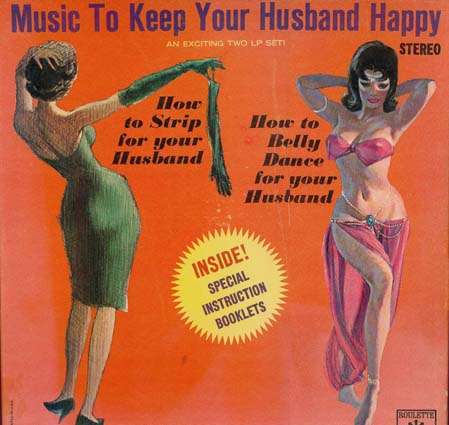 This album (Music to Keep Your Hustband Happy) is one of a couple of albums I am aware of that was set up to encourage sex play among married couples.
This album (Music to Keep Your Hustband Happy) is one of a couple of albums I am aware of that was set up to encourage sex play among married couples. Sometimes, however, the way to a man’s heart is by tearing off his clothes. Early Hip-Hop artist Tony Tee offers us a show of his masculinity by showing himself as about to lift a barbell, which doesn’t look an ounce over 40 pounds, in his 1988 album “Time to Get Physical”.
Sometimes, however, the way to a man’s heart is by tearing off his clothes. Early Hip-Hop artist Tony Tee offers us a show of his masculinity by showing himself as about to lift a barbell, which doesn’t look an ounce over 40 pounds, in his 1988 album “Time to Get Physical”.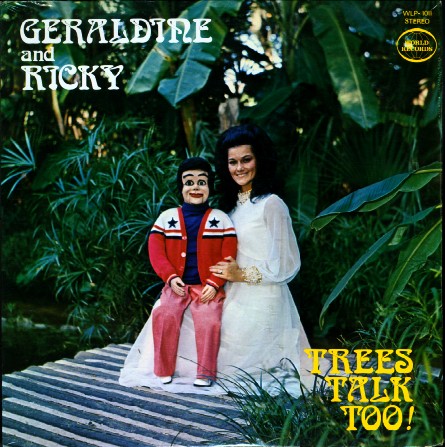

 Alla Pugatjova (also spelled Alla Pugacheva) is legendary female vocalist from the former Soviet Union whose career goes all the way back to the mid-1960s. “Every Night and Every Day” and “Superman” are two tracks that seem to come from her 1985 album, “Watch Out!”, an album which appears to be in English. So, this is more like the cover for a 45 RPM single, and not an album.
Alla Pugatjova (also spelled Alla Pugacheva) is legendary female vocalist from the former Soviet Union whose career goes all the way back to the mid-1960s. “Every Night and Every Day” and “Superman” are two tracks that seem to come from her 1985 album, “Watch Out!”, an album which appears to be in English. So, this is more like the cover for a 45 RPM single, and not an album.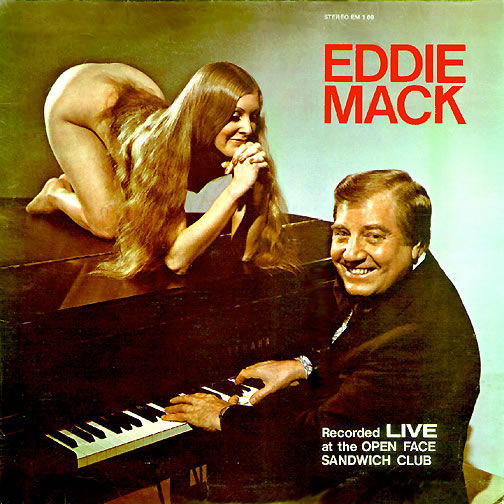 You can never go wrong with albums that sport naked chicks on the cover. Clearly, Eddie is pleased to see her, and she looks pleased to see him. Fine and dandy, but couldn’t he have chose a better title than “Recorded Live at the Open Face Sandwich Club”? Do we really need to be informed that he was playing in a restaurant where people may have only heard him between bites of their steak slices on rye, and were probably chatting throughout his set? Maybe the chick on his piano could control the crowd and tell those wayward patrons to shut the f**k up and let him play.
You can never go wrong with albums that sport naked chicks on the cover. Clearly, Eddie is pleased to see her, and she looks pleased to see him. Fine and dandy, but couldn’t he have chose a better title than “Recorded Live at the Open Face Sandwich Club”? Do we really need to be informed that he was playing in a restaurant where people may have only heard him between bites of their steak slices on rye, and were probably chatting throughout his set? Maybe the chick on his piano could control the crowd and tell those wayward patrons to shut the f**k up and let him play.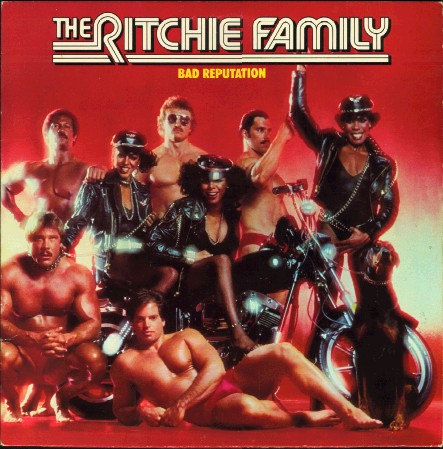 As for chicks getting the guy, the Ritchie Family seem to have no problems going by this album cover. The ladies are the ones in the picture that are fully dressed.
As for chicks getting the guy, the Ritchie Family seem to have no problems going by this album cover. The ladies are the ones in the picture that are fully dressed.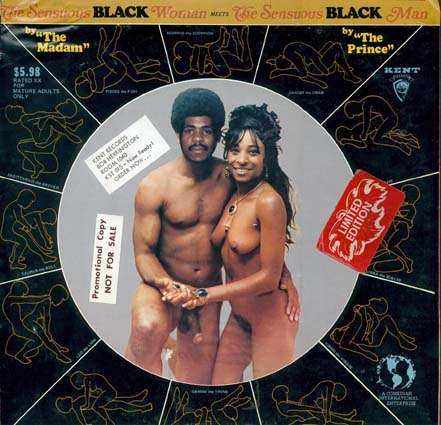 Now we get to see an album where both sexes are in the buff. This is an obscure Various Artists compilation, but it appears from some (unreliable) sources that it was released in 1971. Arranged around their photo like signs of the zodiac are line drawings of people in various sex positions. The title is “The Sensuous Black Woman with The Sensuous Black Man”.
Now we get to see an album where both sexes are in the buff. This is an obscure Various Artists compilation, but it appears from some (unreliable) sources that it was released in 1971. Arranged around their photo like signs of the zodiac are line drawings of people in various sex positions. The title is “The Sensuous Black Woman with The Sensuous Black Man”. I don’t particularly wish to discuss heavy metal album covers all that much. They are meant to be ugly, disturbing, and sometimes even hard to look at. It goes with the territory, and the fans expect it and want it. However, the AC/DC tribute band “Boned” produced a 2005 album cover that pushes the boundaries of artful dissonance clearly into the realm of good old-fashioned bad taste. In the heavy metal arena, you have to work pretty damned hard to make a cover that doesn’t merely disturb and annoy; it just sucks.
I don’t particularly wish to discuss heavy metal album covers all that much. They are meant to be ugly, disturbing, and sometimes even hard to look at. It goes with the territory, and the fans expect it and want it. However, the AC/DC tribute band “Boned” produced a 2005 album cover that pushes the boundaries of artful dissonance clearly into the realm of good old-fashioned bad taste. In the heavy metal arena, you have to work pretty damned hard to make a cover that doesn’t merely disturb and annoy; it just sucks.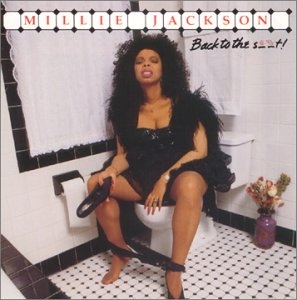 Ever notice that on some of the best paintings in classical art, how we can never tell if the woman is smiling or frowning? In this album (see right) we can’t be sure if the expression on Millie Jackson’s face is one of pleasure or pain. Does this qualify the album cover for display in The Louvre?
Ever notice that on some of the best paintings in classical art, how we can never tell if the woman is smiling or frowning? In this album (see right) we can’t be sure if the expression on Millie Jackson’s face is one of pleasure or pain. Does this qualify the album cover for display in The Louvre?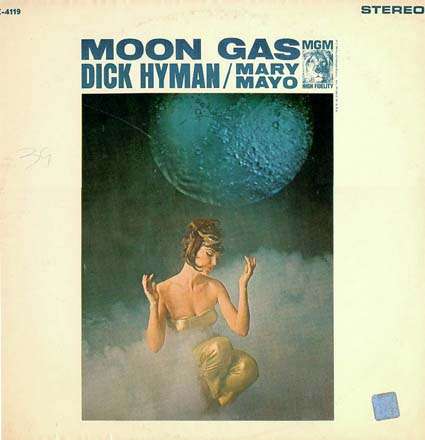 And I nearly forgot to include Jazz legend Dick Hyman’s album Moon Gas in this post. I can relate to this title. I get something that can be called “Moon Gas” whenever I eat baked beans.
And I nearly forgot to include Jazz legend Dick Hyman’s album Moon Gas in this post. I can relate to this title. I get something that can be called “Moon Gas” whenever I eat baked beans.
